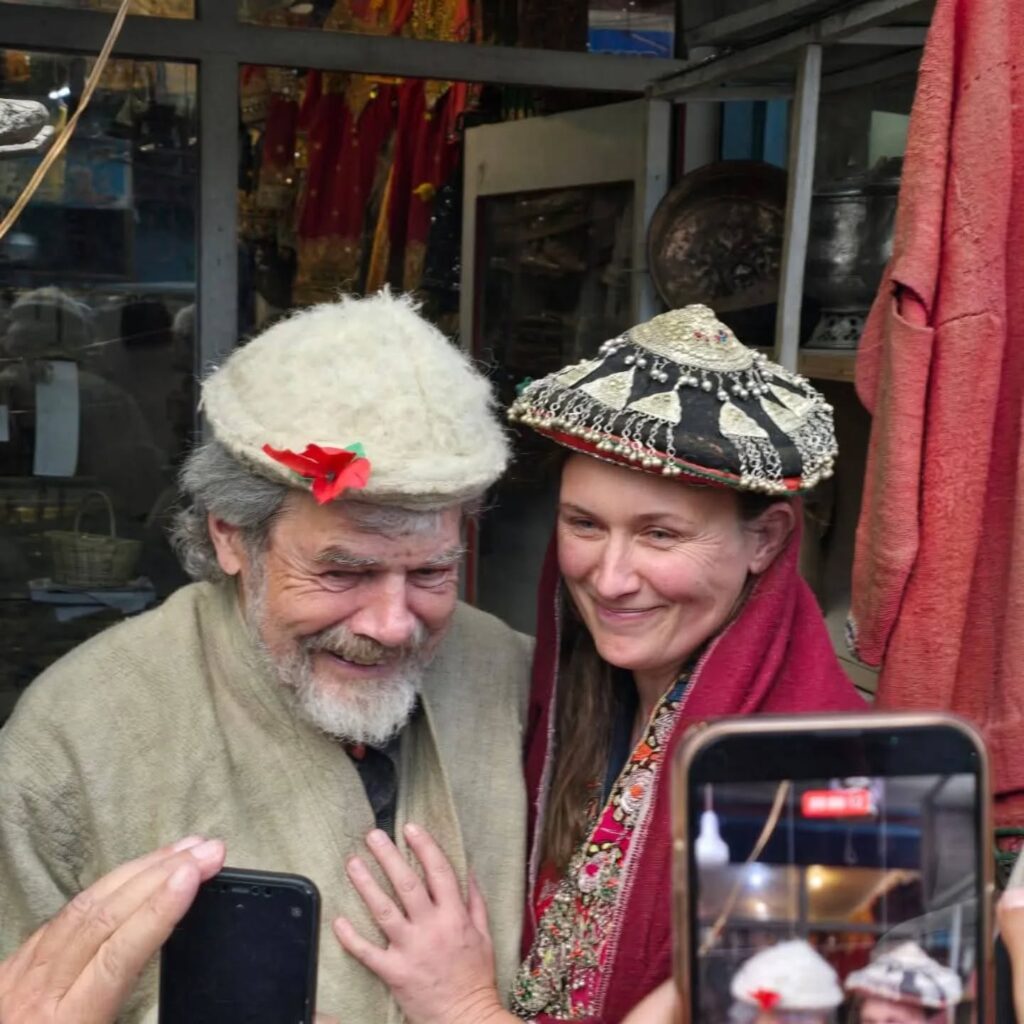
During the early week of October, the renowned mountaineer Reinhold Messner made his return to Pakistan—a country that has profoundly influenced both his climbing career and his personal identity. His visit spanned from the Baltistan region to Hunza Valley, reaching the formidable Nanga Parbat Base Camp, as well as the valleys where his Reinhold Messner Stiftung continues its impactful support in education and community development.
“We are back from Pakistan,” Messner wrote in a heartfelt post. “A country that continues to impress me with landscapes so unreal they seem imagined, yet more beautiful than anything one could ever invent. Pakistan is not just a place of mountains; it is a place of resilience, of spirit, of people who climb their own inner peaks every day.”
Messner’s visit served both as a pilgrimage and a reunion. In Skardu, he encountered his longtime mountain companion, Rozi Ali, whom he referred to as “our cook, our silent strength.” Their friendship dates back to the 1980s and 1990s, during which they were part of expeditions throughout the Karakoram region. This includes the notable double traverse of Gasherbrum I and II, an event that gained recognition through its depiction in Werner Herzog’s film The Dark Glow of the Mountains.
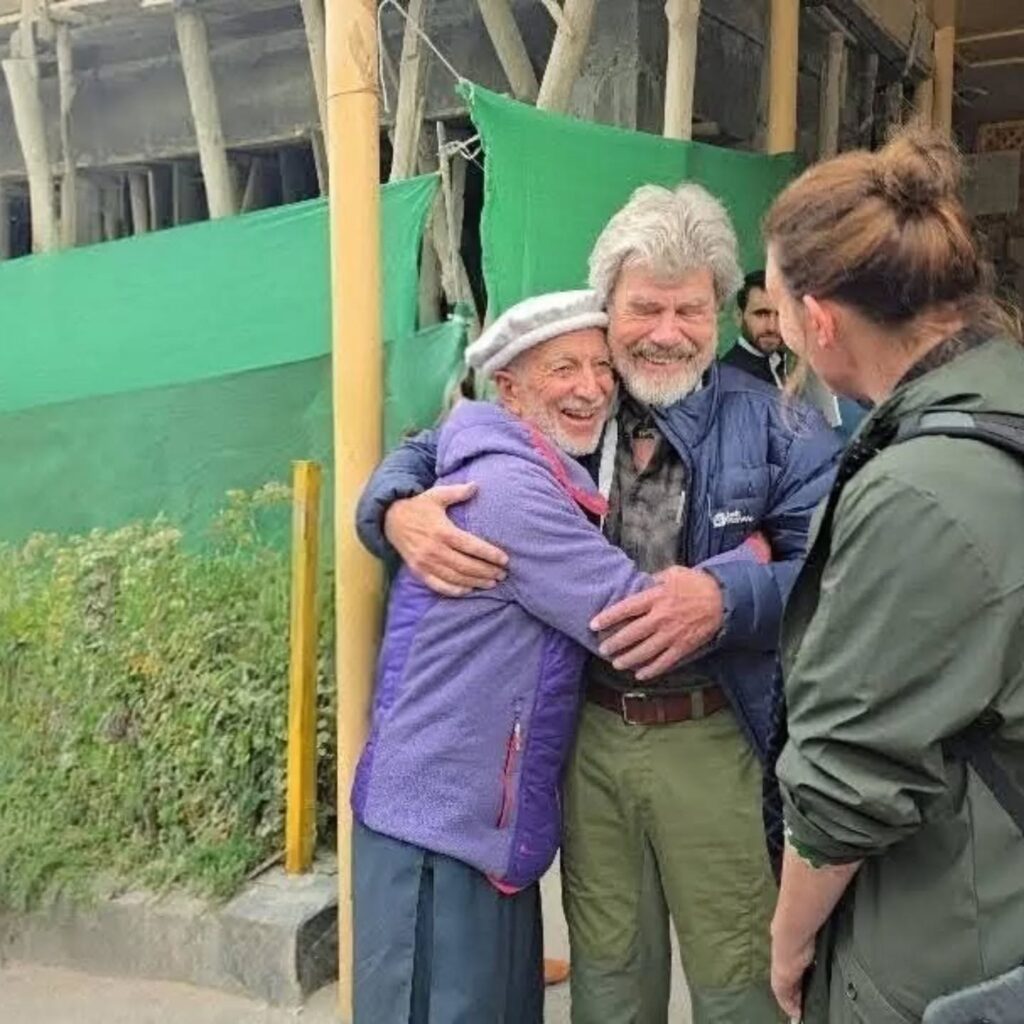
“Together with Hans Kammerlander, I made the double traverse of the Gasherbrums,” Messner recalled. “Our companion, our cook, our silent strength was Rozi Ali. Not only on this expedition, but on so many others, he stood by our side with humility, courage, and loyalty. Today, in Skardu, an emotional reunion. Thank you, Rozi Ali.”
The story of Rozi Ali and his enduring friendship with Reinhold Messner is a powerful reminder of the vital role local heroes have played in shaping the history of mountaineering and exploration in the Karakoram. It is equally commendable that Messner openly acknowledges and honors the contributions of these unsung companions — the porters, guides, and climbers whose courage and dedication have made some of the world’s greatest expeditions possible.
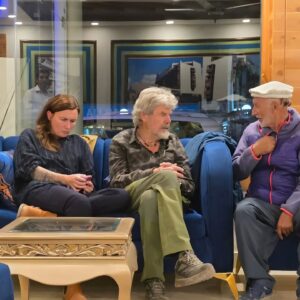
Within the residence of Rozi Ali, located in the Hushe Valley, two longtime friends reminisced by sifting through weathered photo frames, reflecting on the illustrious era of Himalayan exploration.
Messner also returned to Nanga Parbat, the mountain that profoundly impacted his life. It was in 1970 that he lost his brother, Günther, during a tragic descent on the Diamir face—an event that left a lasting impression on him and strengthened his spiritual bond with these peaks.
“To return to Pakistan is to return to the roots of my own becoming,” he wrote. “Here, at Nanga Parbat, I crossed the mountain and lost my brother Günther — a wound that has never closed, but became part of who I am. I look forward to visiting the schools, places where the future is written, where hope grows stronger than loss.”
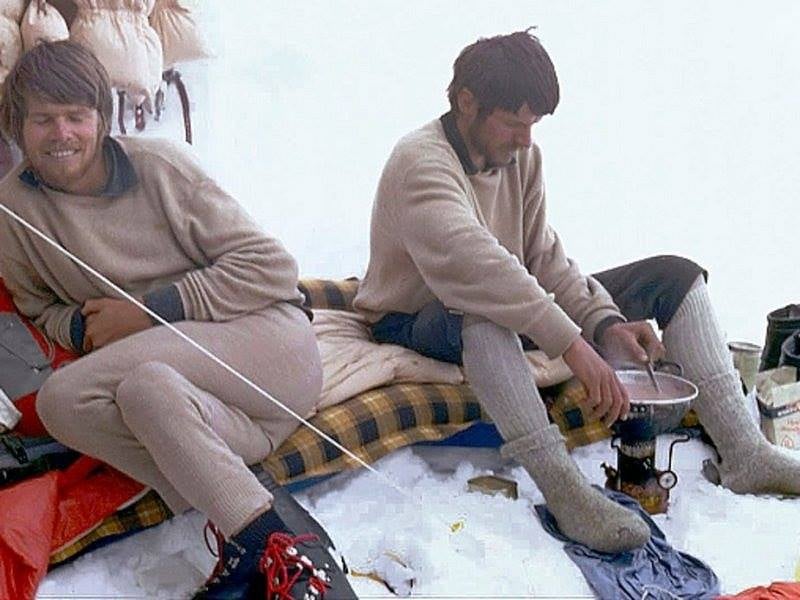
Through his foundation, Messner persists in providing support for educational institutions in the Diamir region such as the Günther Mountain School Diamir, initiatives designed to “create opportunities where life itself is a challenge but not an impossibility.” For him, this undertaking represents the authentic essence of “moving mountains.”
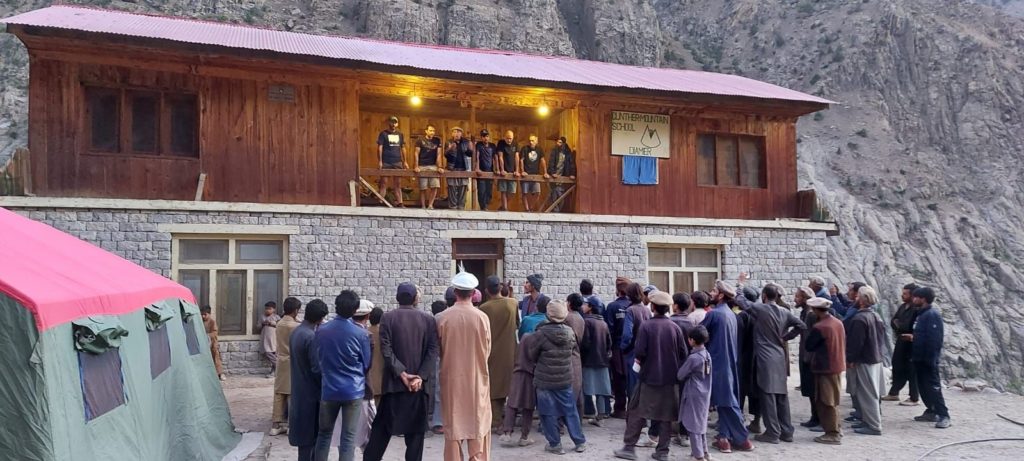
Reinhold Messner’s connection with Pakistan and its people extends beyond the realm of climbing. He is not simply a mountaineer pursuing summits; rather, he is an individual profoundly involved with the cultures, traditions, and human experiences of the Himalayan and Karakoram regions. His inquisitiveness, empathy, and respect for local communities have elevated him beyond the status of an adventurer — they have transformed him into an ethnographer of the high mountains.
For Messner, the Karakoram serves as a second home—a location where friendship, tragedy, discovery, and devotion intersect. His enduring connection with these mountains and their inhabitants remains steadfast.
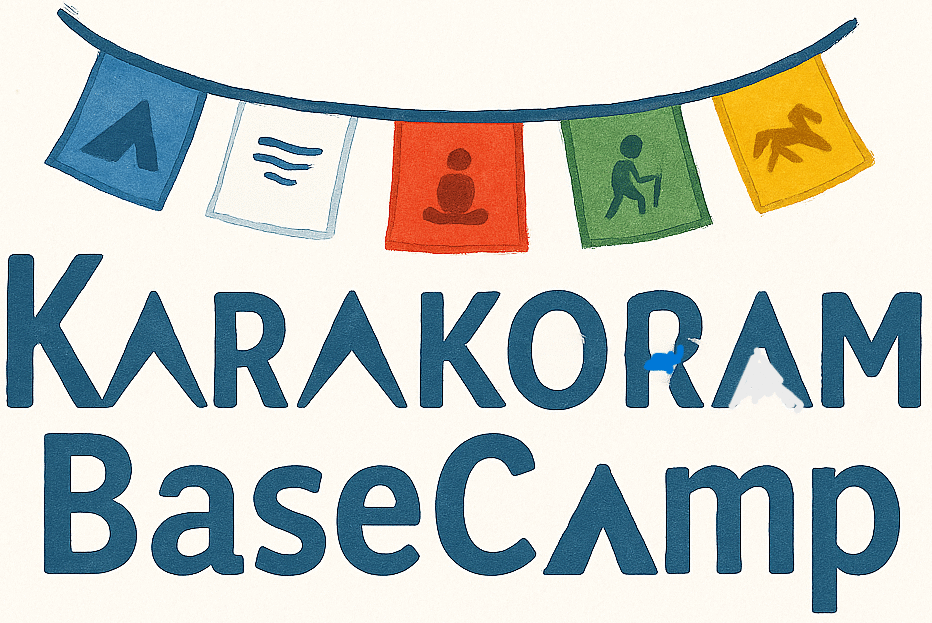
Lovely just what I was looking for.
It’s exhausting to seek out knowledgeable folks on this subject, however you sound like you already know what you’re talking about! Thanks